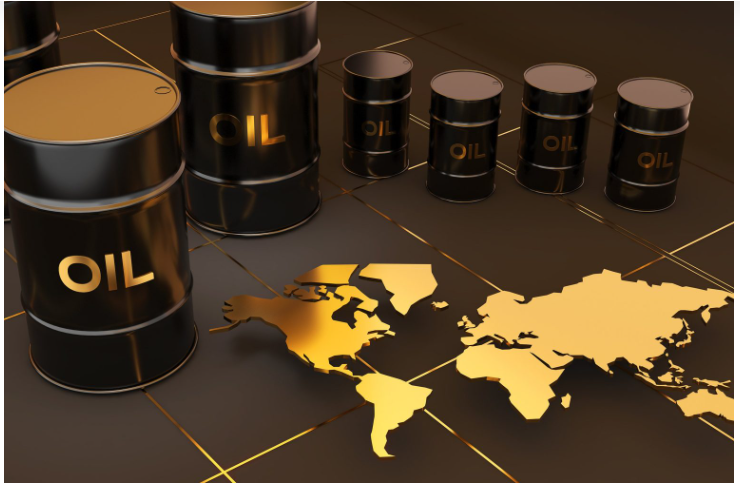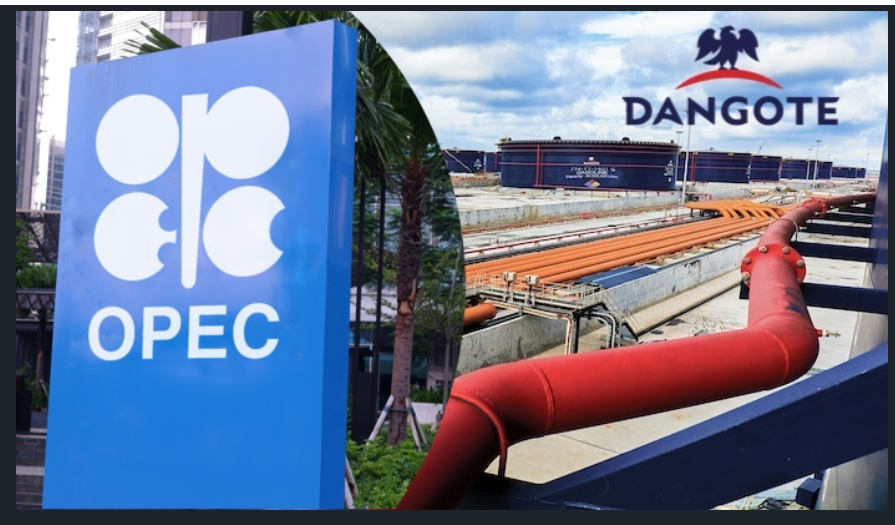 Amid a deepening global energy crisis, African oil-producing nations have taken center stage in critical OPEC talks to address global supply shortages and stabilize soaring fuel prices. With energy demands surging worldwide, Africa’s oil-rich countries, including Nigeria, Angola, and Libya, are playing a pivotal role in shaping the future of global energy markets. leaders from the Organization of the Petroleum Exporting Countries (OPEC) and their allies, known as OPEC, convened for high-level negotiations in Vienna to determine the group’s response to the growing global energy crisis. The talks come as major economies struggle with fuel shortages, price hikes, and mounting concerns about energy security.
Amid a deepening global energy crisis, African oil-producing nations have taken center stage in critical OPEC talks to address global supply shortages and stabilize soaring fuel prices. With energy demands surging worldwide, Africa’s oil-rich countries, including Nigeria, Angola, and Libya, are playing a pivotal role in shaping the future of global energy markets. leaders from the Organization of the Petroleum Exporting Countries (OPEC) and their allies, known as OPEC, convened for high-level negotiations in Vienna to determine the group’s response to the growing global energy crisis. The talks come as major economies struggle with fuel shortages, price hikes, and mounting concerns about energy security.
As some of the world’s top oil producers, African countries have become increasingly influential in OPEC. Nigeria, Angola, and Libya, which account for a significant portion of Africa’s oil output, have been actively shaping discussions on global oil production cuts, seeking a balanced approach that protects both African economies and global markets.
Nigeria, Africa’s largest oil producer, has been advocating for increased production quotas to meet rising global demand while addressing the domestic challenges posed by years of underinvestment in its oil sector. Nigerian Minister of Petroleum Timipre Sylva highlighted the need for OPEC to prioritize stability and affordability in the energy markets.
Our responsibility is not only to our economies but also to the global energy system, Sylva said. We must find solutions that ensure a steady supply of oil while maintaining a fair price that benefits both producers and consumers.
Libya, which has seen fluctuating oil production due to ongoing political instability, has expressed cautious optimism about increasing its output to meet market demands. However, the country’s fragile infrastructure remains a hurdle in consistently delivering on its production goals. Angola, Africa’s second-largest oil producer, has echoed similar concerns, emphasizing the need for modernization of its oil sector to meet growing market needs.
 The OPEC talks come as Europe, Asia, and parts of North America face severe energy shortages, exacerbated by geopolitical tensions and environmental shifts. The Russia-Ukraine conflict, in particular, has disrupted global energy supplies, with Western sanctions on Russian oil and gas leading to a scramble for alternative sources. African oil producers have become key players in filling this gap with European nations.
The OPEC talks come as Europe, Asia, and parts of North America face severe energy shortages, exacerbated by geopolitical tensions and environmental shifts. The Russia-Ukraine conflict, in particular, has disrupted global energy supplies, with Western sanctions on Russian oil and gas leading to a scramble for alternative sources. African oil producers have become key players in filling this gap with European nations.
However, African oil-producing nations face their own challenges. Years of underinvestment, outdated infrastructure, and political instability have constrained their ability to quickly ramp up production. While global markets are eager for increased African oil exports, many African countries are grappling with domestic energy shortages, making it difficult to prioritize international demands.
As the world transitions toward cleaner energy solutions, Africa is also positioning itself as a future leader in renewable energy production. Several African nations, including Morocco, Kenya, and South Africa, have invested heavily in solar, wind, and hydroelectric projects, seeking to reduce their dependence on fossil fuels and contribute to the global push for greener energy.
During the OPEC talks, African leaders emphasized the importance of balancing oil production with investments in renewable energy infrastructure. Nigeria, for example, has announced plans to increase its solar energy capacity, aiming to provide cleaner and more sustainable energy sources for its population while continuing to meet global oil demands.
In an address to OPEC ministers, Angolan President João Lourenço emphasized that while oil remains a vital part of Africa’s economy, the continent must also look ahead to the future of energy. Africa must be at the forefront of the global energy transition, Lourenço said. We have the resources and the potential to lead in both traditional and renewable energy markets.
As the OPEC meeting progresses, the decisions made by African oil producers will have far-reaching consequences for the global energy market. With rising energy prices threatening to stifle economic growth worldwide, the international community is watching closely to see how OPEC will balance oil supply management with the urgent need to secure energy stability.
African nations, on the other hand, are seeking to leverage their newfound influence within OPEC to ensure that their domestic needs are met while contributing to the global market. The success of these talks will not only impact energy prices but also reshape Africa’s role in the global energy landscape.
As the world navigates the complex dynamics of a changing energy market, Africa’s oil producers are proving that they are more than just suppliers – they are key players in global energy diplomacy, driving the conversations that will determine the future of energy security for millions across the globe.
Ennywealth


